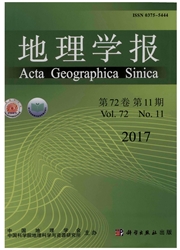

 中文摘要:
中文摘要:
外资知识密集型制造业进入中国市场,对中国制造业升级转型起着一定的作用。本文围绕区域制度环境和区域吸收能力,探讨影响知识密集型企业进入方式的区域环境,旨在揭示知识密集型产业的外商进入方式的地理驱动机制,有利于加深理解在经济发展方式转型的时代背景下,区域与城市获得外生技术发展动力的机制。采用从1982-2014年德国在华投资企业数据库,结果发现,德国知识密集型制造企业在中国的投资呈现由沿海地区向内陆地区扩张、沿海中心城市向周边城市扩散的时空趋势,并且在1995年后,其进入方式从合资为主向独资为主转变。逻辑计量模型显示,德国知识密集型制造企业的进入方式受到多项区位因子的影响,其中地方人力资源水平和产业专业化水平是知识密集型制造企业选择以合资方式的进入中国市场的重要区位因素,表明区域知识吸收能力是形成全球—地方战略协同的关键变量;另一方面,实际使用外资存量和地方专利授权量这两个区位影响因素则会显著促成知识密集型制造企业采用独资的进入决策,反映了区域制度环境对吸引以知识产权保护为战略核心的知识密集型制造业的作用。
 英文摘要:
英文摘要:
Foreign direct investment in the knowledge-intensive manufacturing industry constitutes the key to industrial upgrading and economic restructuring in China.Present studies on foreign direct investment are still limited in regard to understanding their specific investment behaviors.Entry mode is the key strategy of foreign firms which determines their success in the host countries.Regions,as the basic spatial units with specific economic,social and cultural character,affect the entry mode of foreign firms to a great extent.This paper aims to reveal the geographical mechanism of the entry mode of FDI in the knowledge-intensive manufacturing sector,which advances the understanding of the exogenous-driven mechanism of urban and regional development within the context of economic restructuring in China nowadays.The theoretical framework of this paper proposes two fundamental locational factors influencing the choice of entry mode into the Chinese market:regional institutional environment and regional absorptive capacity.On the one hand,regional institutional environment is expected to influence the transaction cost of doing business in the host countries,in particular within the context of transition economies.When the regional institutional environment is better off,the knowledge-intensive firms tend to choose the whollyowned entry mode to safeguard the interests of their own technology and reduce the risks of being rapidly imitated by local actors without costs.On the other hand,regional absorptive capacity enhances the willingness of foreign firms to form joint ventures with local firms in order to tap into the local knowledge pool.In regions with low absorptive capacity,foreign investment tends to constrain the scope of knowledge exchange within communities of foreign firms,and show limited willingness to cooperate and interact with local firms.Using the database of German knowledge-intensive FDI in China from 1982 to 2014,the analysis shows that the German FDI has been concentrated in the coastal areas of China
 同期刊论文项目
同期刊论文项目
 同项目期刊论文
同项目期刊论文
 期刊信息
期刊信息
